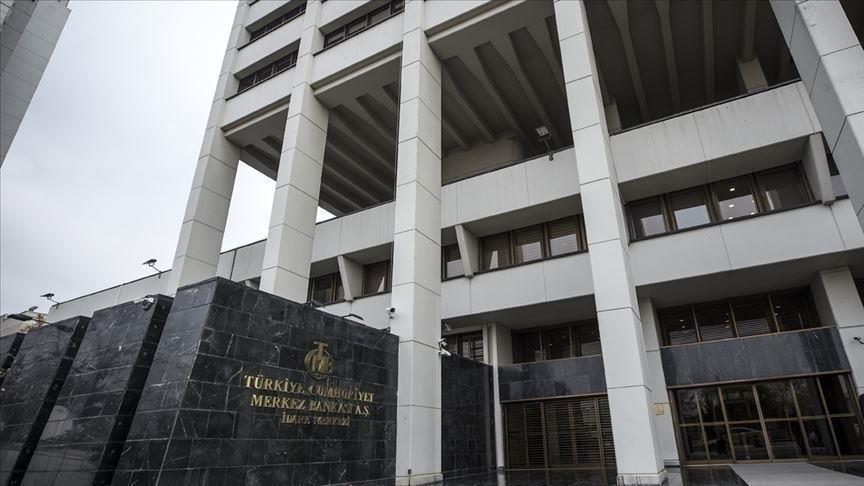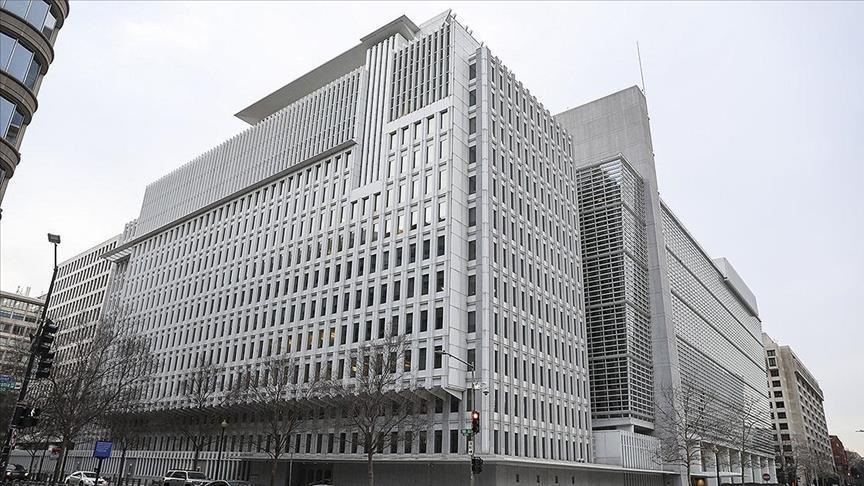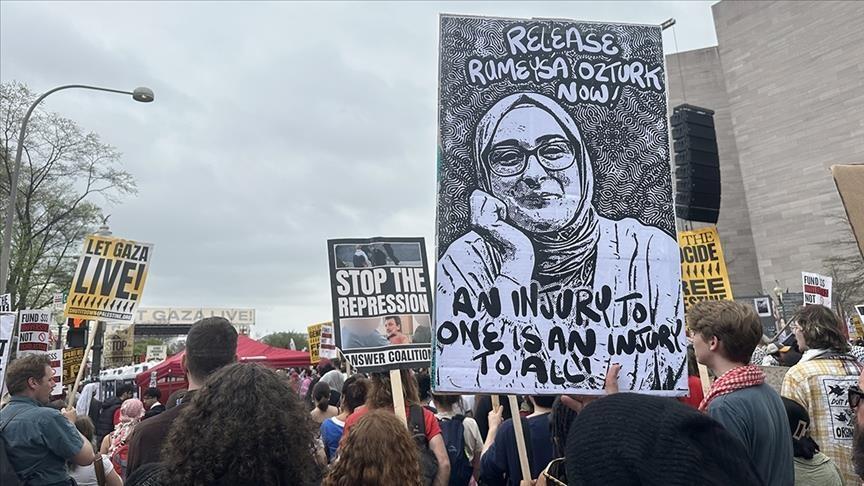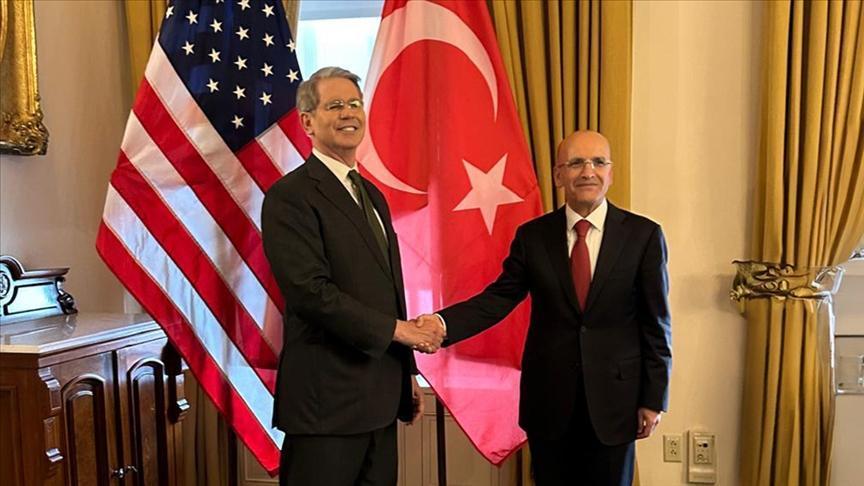‘Historic’ Cyprus peace to resume in Geneva
NICOSIA /GENEVA
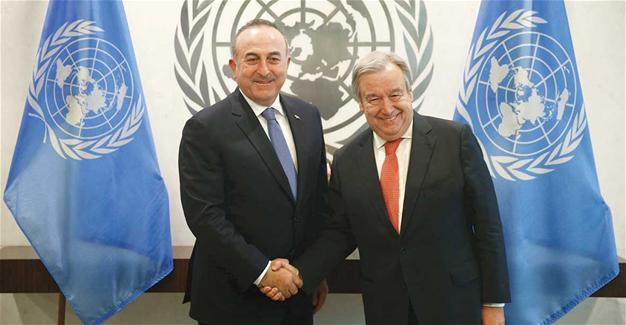 The two leaders of the eastern Mediterranean island Cyprus will resume United Nations-brokered peace talks in Geneva on Jan. 9 amid suggestions by the new U.N. chief the meeting represents a “historic opportunity” to end a decades-long conflict on the island even though the outcome is far from certain.
The two leaders of the eastern Mediterranean island Cyprus will resume United Nations-brokered peace talks in Geneva on Jan. 9 amid suggestions by the new U.N. chief the meeting represents a “historic opportunity” to end a decades-long conflict on the island even though the outcome is far from certain. Turkish Cypriot President Mustafa Akıncı and his Greek Cypriot counterpart, Nicos Anastasiades, will meet once again in Geneva on Jan. 9 after two rounds of peace talks in the same Swiss resort ended without producing a result in late November 2016.
After the Jan. 9 meeting in Geneva, they will meet again on Jan. 11 when they will present their respective maps for the internal boundaries of a future federation.
From Jan. 12, a five-party conference on Cyprus is scheduled to be convened with the added participation of the guarantor powers of Turkey, Greece and Britain.
While the schedule for the peace talks is set and the United Nations has regarded these negotiations as a “historic opportunity,” it is not clear what will emerge from the talks as no deadline or concrete target has been proposed for the end of the talks despite the ultimate aim of reaching a peaceful solution to end the more than 40-year-old conflict.
‘Decisive phase’
The U.N.’s new secretary-general, Antonio Guterres, who will chair the talks, believes there is “a historic opportunity” for a breakthrough in the upcoming negotiations, U.N. spokesman Stephane Dujarric said Jan. 6.
“We’re at a very decisive phase in the Cyprus peace talks,” Dujarric said, according to The Associated Press. “At this point it’s really about being supportive of the process and seeing how the parties can finally bridge the final gaps.”
“It is a real possibility that 2017 will be the year when the Cypriots, themselves, freely decide to turn the page of history,” United Nations envoy Espen Barth Eide also said in a New Year’s message.
Erdoğan talks to Guterres, May
Guterres and Turkish President Recep Tayyip Erdoğan agreed during a phone conversation on Jan. 7 that the coming talks in Geneva could be an important opportunity to reach a settlement, Anadolu Agency cited Turkish presidential sources as saying.
Erdoğan also talked on the phone with Theresa May, the prime minister of the United Kingdom, which is one of the three guarantor states of the island, on Jan. 7, during which the two leaders “agreed that the Geneva meeting was a real opportunity to secure a better future for Cyprus and to guarantee stability in the wider region,” a Downing Street statement read.
The island has been divided into two states, a Turkish Cypriot administration in the north and a Greek Cypriot administration in the south, since Turkey intervened in the northern part of the island on 1974 following a coup aimed at unification with Greece.
‘Last framework of chance,’ says Turkish FM
Speaking after meeting Greek Foreign Minister Nikos Kotzias in New York on Jan. 6, Turkish Foreign Minister Mevlüt Çavuşoğlu said these talks were the last “framework of chance” to end the division of the island.
“I hope that both the Greek Cypriot and the Greek sides will be in the same understanding [of reaching a bi-zonal, fair and long-lasting solution like us] and that we will achieve a result from the conference that will start on Jan. 12,” state-run Anadolu Agency quoted Çavuşoğlu as saying.
“We do not want this opportunity to be missed,” he added.
Çavuşoğlu met Guterres on Jan. 5 in New York, during which the two parties not only discussed the Cyprus issue but also the Syrian crisis and the planned Astana talks for a cease-fire plan for Syria.
Çavuşoğlu also met Eide on Jan. 6 in New York.
If a final agreement is reached for Cyprus, it will be put before both of the island’s communities in a referendum that Akıncı has previously said could be staged by mid-2017 if all goes well at the Geneva talks.
A U.N.-brokered peace deal, known as the Annan Plan, was approved by Turkish Cypriots in 2004 but rejected by Greek Cypriot voters.


